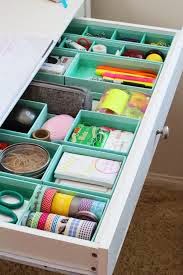Here are several tips on how to keep the household organized including the
kids:
~ Have a poster/list of all the tasks the kids need to do before "free time" such as, homework, clothes in hamper, brush teeth, put out garbage, load dish washer/unload dishwasher etc.
~ Prepare lunches for next day the night before, have home work and back packs ready to go night before and ready at the front door or even in vehicle.
kids:
~ Have a poster/list of all the tasks the kids need to do before "free time" such as, homework, clothes in hamper, brush teeth, put out garbage, load dish washer/unload dishwasher etc.
~ Prepare lunches for next day the night before, have home work and back packs ready to go night before and ready at the front door or even in vehicle.
~ Have 5 outfits ready for the week, cleaned, ironed if needed and have them in closet ready for wearing...you may want to try this for yourself too.
~ Have a designated area with files or a basket/box for each family member for papers to go, class trip slips, class fundraiser info., parent teacher meeting schedule, etc. Make a point of checking it daily at the same time everyday ie. when kids are home from school working on homework.
~ For older children help them schedule and prioritize their week and tasks needing to get done, homework, dance classes, group projects, volunteer shifts.
 ~ Organize kids toys 5 easy steps:
~ Organize kids toys 5 easy steps:1. Separate all your kids' toys into categories. Building blocks, tools, dolls, reading materials, action figures and cooking items are all toy categories.
2. Make a list of your categories. List in the broadest possible terms. For example, you'll likely keep Barbie dolls and accessories together.
3. Decide on the best container (box, basket, bin) to hold each category. Clear, plastic storage boxes are the best choice for most toys, you can label them with pictures of the toys inside them as well for younger children learning to read. Consider a rolling cart for toys that kids like to move throughout your home.
4. Gather each category and measure. For example, stack all the building blocks. Measure dimensions and find or buy appropriate containers.
5. Set it up. Each toy should be categorized and should have a home to make clean up quicker and easier. If children know exactly where things belong, they are more likely to put them away.
~ Before bedtime have the kids involved in 10 minutes of tidy up time and make sure all their belongings make it back to their rooms and/or toy boxes/bins.
~ Make your night routine a routine, homework, play, dinner, play, bath, stories and bedtime. Children do well in routines and look forward to them. Make time to be with your children for at least 30 minutes a night/day.
~ Use your family Message Centre to show upcoming events; birthdays, skating lessons, dance competition, picture day, etc. so the children are aware of what is coming up in the week or month. You can use stickers for younger children so they learn the days of the week and that a cake sticker is a birthday, a book is library day etc.
I hope this helps you busy moms out. Stay consistent and always let your kids know what they will be doing next as the day and night unfolds so there are no surprises for them and things run smoothly ie. we have 15 minutes until it is bath time. Let me know what keeps you and your family organized, share your tips for other moms!











